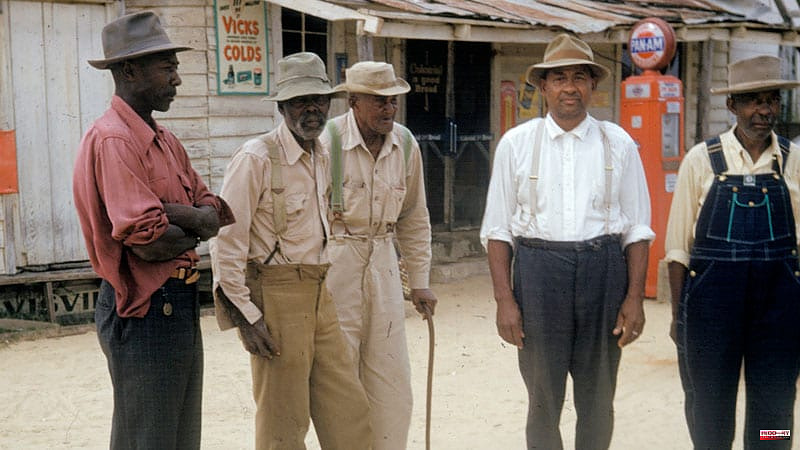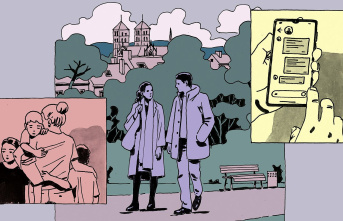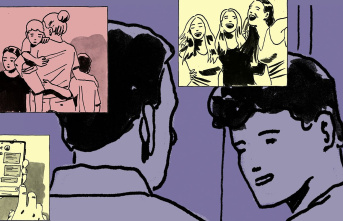BIRMINGHAM (Ala.) -- From the 1930s, when hundreds of Black men died in Alabama from syphilis, a foundation in New York paid for funeral costs. In a time of poverty and racism, the payments were crucial for survivors.
Although they sound altruistic, the $100 checks were not a simple act of charity. They were part of a nearly impossible scheme. For the money to be obtained, the widows and other loved ones had the right to allow doctors to cut open the bodies of the deceased men to perform autopsies. This would reveal the extent of the disease that the victims were being told was "bad."
The Milbank Memorial Fund, which made the funeral payments for the Tuskegee Syphilis Study victims, apologized publicly Saturday, fifty years later. This is the result of America's racial reckoning following George Floyd's assassination by police in 2020.
It was wrong. We are ashamed of what we did. Christopher F. Koller, president of the fund, said that he was deeply sorry.
An apology was made and a monetary donation was made to the Voices for Our Fathers Legacy Foundation. This ceremony took place in Tuskegee, where it was presented to children and other relatives of men who participated in the study.
The fund was founded in 1905 by Elizabeth Milbank Anderson. She is part of a well-connected New York family. According to tax records, the nonprofit philanthropy had approximately $90 million in assets and a Manhattan office at Madison Avenue. It was originally focused on child welfare and public healthcare, but now it focuses on health policy at state level.
Koller stated that it was difficult to explain the decision of the 1930s leaders to make the payments or justify the events. Some Black Americans in America still fear the government's health care system despite the fact that it has been called the "Tuskegee Effect" many generations later.
Koller stated that "the upshot of all this was real harm" in an interview with The Associated Press before the apology ceremony. It was yet another example of how men in the study were deceived. We are dealing with individuals, as well as as a nation, with the effects of this deceit."
The study was conducted by Lillie Tyson Head, Freddie Lee Tyson's father. She is now the president of Voices. Even though it is 25 years since the U.S. government had apologized for the study, she called the apology "a wonderful gesture" and "a wonderful thing", even though the apology was made to the last survivors of the study who all have since died.
Head said, "It's really an example of how apologies may be powerful in making reparations or restorative justice be actual."
Head claimed that she did not know anything about Milbank's involvement in the study, despite her leadership of the descendants' group. Koller only called Head last fall to inform her. She said that the payments were discussed in academic studies, and in a few books, but not by the descendants.
She said, "It was something that really caught me off-guard." Head's father, who was suspicious of the research and left the study years before the end, said she. He didn't get any Milbank money but hundreds did.
Harvard, Georgetown, and California universities are just a few of the other prominent institutions that have admitted to their links to slavery and racism. Susan M. Reverby (a historian who wrote a book on the study) researched the Milbank Fund’s participation at the request of the fund. She suggested that the Milbank Fund's apology could serve as an example to other groups with systemic racism ties.
She said, "It's really essential because at a moment when the nation is so split, how we come up with our racism is so complex." It is hard to confront it, but they didn't have the burden. It's a great example of history being used to restore justice.
In rural Alabama, doctors with government medical licenses withheld treatment for Black men with syphilis from them. This was done so that they could be tracked and dissected. A total of 620 men were examined and approximately 430 had syphilis. Reverby's study found that Milbank gave $20,150 for 234 autopsies.
The Associated Press published the story in 1972. The men sued and received a $9 million settlement. The remaining funds are sought by descendants, who were described in court records "relatively small".
After Hugh Cumming, the U.S. surgeon-general at the time, requested the money in 1935, the Milbank Memorial Fund was established. Reverby discovered that this was critical in convincing families to consent to autopsies. Koller stated that the approval of the funding was made in part by a group consisting of white men who had close ties with federal health officials, but did not have a good understanding of Alabama and the cultural norms of Black Southerners. They believed dignified burials were important to them.
Koller stated, "One of the lessons we learnt is that you can make bad decisions if your perspectives aren't particularly diverse and you don’t pay attention to conflict of interest."
Reverby stated that the importance of burial insurance became less as Black families were able to afford it, and the Depression ended. Milbank, originally named as a defendant in the suit by the men, was later dropped and the organization ended the matter.
Reverby's book "Examining Tuskegee: The Infamous Siphilis Study and Its Legacy" was published in 2009. Koller stated that it was only after Floyd's murder at the hands Minneapolis police that the Milbank staff began to discuss the fund's role.
He said that both the board and staff felt they had to confront this situation in a different way than before.
Koller stated that the fund not only offered a public apology to descendants but also donated an undisclosed amount of money to Voices for Our Fathers Legacy Foundation.
Head stated that the money will provide scholarships for the descendants. A memorial will be held at Tuskegee University by the group, which was once the conduit for payments and where medical personnel saw the men.
Reverby said that while times have changed dramatically since the first burial payments were approved almost 100 years ago, it's impossible to justify what has happened.
She stated that "the records clearly say untreated syphilis." You don't have to be a Ph.D. in order to understand this, and they did it year after year.
___
Reeves is a member AP's Race and Ethnicity Team.












